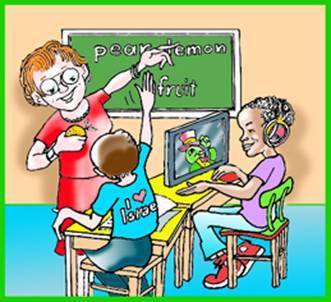
In the fall of 2006, I was asked by ESRA to create an English tutorial program for high school students in preparation for their bagrut exams. At the time, we had two high schools that had asked for help. We advertised for volunteers, and the response was excellent. However, we knew that we could not just send willing people into the schools without preparation and support. As we established, piece by piece, specific responses to the needs of the tutors and the students, our tutorial program took shape and became the model which is still in place. Now, completing our third year, we have serviced three high schools, a junior high, and three elementary schools, helping 30 volunteers in their tutorial roles. The model which we established in the first year has proved so successful that AACI in Netanya has joined our program. We have a steering committee made up of two representatives from ESRA and two from AACI. The committee is responsible for recruitment, vetting and training the tutors. They are also responsible for maintaining communication throughout the year with the tutors, teachers and English coordinators. Every year, more schools ask for our help. The feedback from the students (all ages) is heartwarming and the English coordinators are ecstatic.
The effect of our program upon the tutors is even more stunning. We recently held an end of year tutors get-together. The warmth, excitement and appreciation for our program was special. Whereas, at our first tutors get-together back in March 2007, everybody sat quietly and just listened, now the tutors were bubbly, talking about their students, their experiences and the pleasure that they receive in going, every week, for two hours each time, meeting with students and enjoying their experience. They thanked us for giving them something to do that is so positive for them. It keeps them busy and feeling that they are contributing directly to a child's welfare. The committee holds these end of year get togethers in order to give and receive feedback. Our role is to keep the tutors “on their toes” by providing and dealing with learning issues.
We were faced with several issues that determined the way in which we would handle the tutorial program, (now referred to as the Netanya model). We realized that not all the volunteers would come from a teaching background. Furthermore, many came to Israel as adults who had been educated in an entirely different atmosphere from that which exists in the Israeli school system. In addition, what should be our goals if we see the students once or twice for a maximum of 45 minutes? The tutors had many questions: “What do I do with a recalcitrant student? How do I get a student to respond? What is appropriate for me to talk about with the students? What if the student doesn't understand English and my Hebrew is limited? How do I start?” It was for these and many other reasons that we created a training session for the tutors before they entered the schools. Originally, Lola Katz gave a workshop on informal education. Our policy is: we do not teach grammar. We do not teach! We help the student learn. These are two very different acts related to education. The emphasis on teaching generally expresses itself in formal educational methods. The emphasis on helping the student learn expresses itself in the informal educational model. If we want to help the students feel comfortable in using English, then we must have tutors who can accept the students as they are, offer positive feedback, friendship and a caring, open relationship. Many of the tutors have remarked that the relationship that develops is that of grandparents to grandchildren. You have to love them.
Our model consists of the following processes:
In late September we hold an introductory meeting for all those interested in learning more about our program. At that time, potential tutors are asked to fill out questionnaires which include questions about their work experience, work with groups, etc. The four members of the steering committee, Ros Ben Ezra and myself of ESRA, and Ada Kaplan and Miryam Bar David of AACI all have extensive educational training and experience. We interview each person at the introductory meeting to get a sense of whether this person will relate well to students and if the students will like them. We also take note of any physical limitations that will complicate their presence in the schools. Not everybody can be a tutor. New immigrants coming off the plane insist on becoming tutors although they have never been in an Israeli school or had contact with Israeli youngsters. We also look for relaxed, positive, smiling faces and personalities. Our premise is that the way in which they present themselves to us is very much the same way they will present themselves to the students.
After reviewing the applications and sharing our impressions, the committee decides which volunteers will be invited to the training session. This process keeps the focus of the tutorial program on students' needs rather than on the volunteers’ needs. Matching tutors to students is our first and most important priority.
The training session is held after the high holidays, two weeks prior to the start of the tutorial season, in the morning and attendance is mandatory if they wish to become tutors. The purpose is to give the tutors an introduction to informal education, and the attitudes and techniques that are required, and also to let them know that they are not alone, but are supported by the committee. Should problems arise, and they do, we want the tutors to feel that we are there to help them sort things out.
Three committee members accept responsibility for specific schools and tutors. Our job is to liaison with the English coordinator, create a mutually convenient schedule for the tutors based on the school's needs, and to set up the orientation for the tutors at the school. Ada Kaplan acts as ombudsman throughout the year, visiting each school while the tutors are there, observing, giving suggestions, providing feedback to the tutors and the committee. We ask the schools to inform us if the students will not be available so that we can inform the tutors, and we ask the tutors to inform us if they will be away or absent. We prefer that tutors go to their school as a group. This helps in setting up carpools and meeting other transportation needs. It also provides for opportunities to share ideas, learn from each other and hopefully, bond.
A major benefit emerging from this program (although there are many) is that it provides opportunities to Anglo retirees, who are generally not bilingual, to have direct contact with Israeli students and teachers in an Israeli setting. Our motto is Livnot and Lhibanot. And it seems to work. We look forward to continued growth and nachat.
For information contact Ivy 09 887 4580.
 The Morman University Sunday Concert, with ESRA
The Morman University Sunday Concert, with ESRA 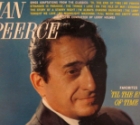 Congratulations to ESRA Rehovot on its 10th
Congratulations to ESRA Rehovot on its 10th 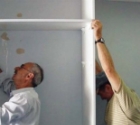 THANK YOU!
THANK YOU!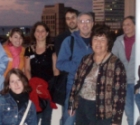 Midrash Meets Tel Aviv Culture
Midrash Meets Tel Aviv Culture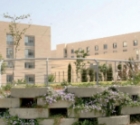 The Open University of Israel
The Open University of Israel MUMMIES, MYTHS AND MAGIC CATS IN ANCIENT EGYPT
MUMMIES, MYTHS AND MAGIC CATS IN ANCIENT EGYPT